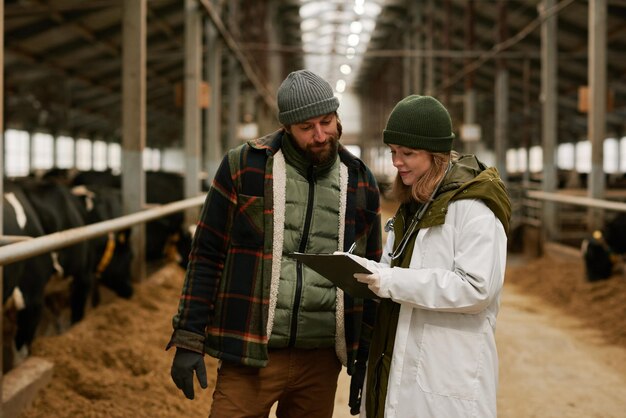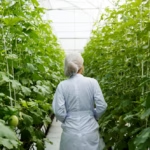Farming is a rewarding profession, but it comes with its share of risks. Ensuring the safety of farm workers, family members, and visitors is crucial for maintaining a productive and hazard-free environment. Here are some essential farm safety tips tailored for South African farmers.
1. Develop a Comprehensive Safety Plan
A well-thought-out safety plan is the foundation of a safe farm. This plan should include:
- Risk Assessments: Identify potential hazards across the farm, from machinery to livestock handling.
- Emergency Procedures: Ensure everyone knows what to do in case of a fire, accident, or severe weather event.
- Contact Information: Keep a list of emergency contact numbers, including local hospitals and fire services, in an easily accessible place.
Tip: Regularly review and update the safety plan to account for new equipment, seasonal activities, or changes in farm operations.
2. Ensure Proper Training for All Workers
Proper training reduces the risk of accidents and improves overall farm efficiency. All farmworkers should be trained on:
- Equipment Operation: Safe handling of tractors, harvesters, and other machinery.
- Chemical Handling: How to use pesticides, herbicides, and fertilizers safely and store them properly.
- First Aid: Basic first aid knowledge to respond quickly to common farm injuries.
Tip: Schedule refresher training sessions annually to keep safety practices top of mind and introduce any new protocols.
3. Maintain Equipment Regularly
Malfunctioning equipment is one of the leading causes of farm injuries. Routine maintenance can help prevent unexpected breakdowns and ensure safety.
- Check Machinery Before Use: Ensure that brakes, lights, and safety guards are functional.
- Lubricate Moving Parts: Reduce the risk of parts seizing or breaking during use.
- Inspect for Wear and Tear: Regularly check for frayed belts, leaking hydraulic lines, and worn tires.
Tip: Create a maintenance log to track inspections, repairs, and services for all equipment.
4. Promote Safe Animal Handling
Working with livestock poses risks, especially with larger or unpredictable animals. Safe animal handling practices include:
- Understanding Animal Behavior: Educate workers on how animals react to stimuli such as loud noises or sudden movements.
- Using Safety Gear: Equip workers with gloves, boots, and other protective clothing.
- Safe Enclosures: Ensure that fences, pens, and holding areas are secure and designed to minimize stress on the animals.
Tip: Never allow untrained individuals to handle potentially dangerous animals, especially bulls or large breeding stock.
5. Implement Fire Safety Measures
Farms are particularly vulnerable to fires due to the presence of flammable materials such as hay and fuel. Prevent fires by:
- Installing Fire Extinguishers: Ensure extinguishers are placed in key areas like barns, workshops, and near fuel storage.
- Maintaining Electrical Equipment: Regularly check wiring and electrical devices for signs of damage or wear.
- Storing Flammable Materials Safely: Keep fuels, chemicals, and hay in separate, ventilated storage areas.
Tip: Train workers on how to use fire extinguishers properly and conduct fire drills to practice evacuation procedures.
6. Ensure Safe Storage of Chemicals
Improper chemical storage can lead to severe health hazards. Follow these guidelines:
- Label Clearly: All chemicals should be clearly labeled with their contents and safety warnings.
- Use Secure Containers: Store chemicals in their original, sealed containers to prevent leaks.
- Keep Out of Reach: Restrict access to chemicals by locking them in designated storage areas.
Tip: Maintain an inventory of all chemicals and include material safety data sheets (MSDS) for reference in case of an accident.
7. Practice Safe Lifting and Manual Labor
Farm work often involves heavy lifting, which can result in injuries if not done properly. Teach workers:
- Proper Lifting Techniques: Bend the knees and keep the back straight when lifting heavy items.
- Use Equipment When Necessary: Encourage the use of carts, wheelbarrows, or forklifts to move heavy loads.
- Work in Pairs: When lifting or moving particularly heavy items, enlist a second person to help.
Tip: Set realistic load limits to avoid overexertion and ensure that mechanical aids are in good working condition.
8. Provide Adequate Lighting and Signage
Well-lit areas and clear signs are vital for preventing accidents, especially during early mornings or late evenings. Ensure that:
- Pathways Are Well-Lit: Use durable, weather-resistant lighting in high-traffic areas.
- Warning Signs Are Visible: Place signs near dangerous areas like chemical storage rooms, animal pens, and deep ditches.
- Reflective Gear Is Used: Equip workers with reflective vests when working at night or near roads.
Tip: Regularly check lighting fixtures to ensure they are functional and replace any burnt-out bulbs promptly.
9. Encourage the Use of Personal Protective Equipment (PPE)
Personal protective equipment (PPE) is a crucial line of defense against injuries and exposure to hazardous materials. Equip your workers with:
- Gloves, Boots, and Helmets: For general protection during farm work.
- Goggles and Respirators: When handling chemicals or working in dusty conditions.
- Hearing Protection: For noisy tasks such as using machinery or power tools.
Tip: Make sure PPE is readily available and fits well to ensure it is used correctly and consistently.
10. Promote Hydration and Breaks
Farm work can be physically demanding, especially during the hot South African summers. Encourage workers to:
- Stay Hydrated: Provide clean drinking water and shaded rest areas.
- Take Regular Breaks: Prevent fatigue by ensuring workers take breaks during long shifts.
- Watch for Heat Stress: Train workers to recognize the signs of heat exhaustion, such as dizziness and rapid heartbeat.
Tip: Schedule the most strenuous activities during cooler parts of the day, such as early mornings or late afternoons.
Farm safety is not just about following rules but fostering a culture where everyone understands and prioritizes safety. By implementing these farm safety tips, South African farmers can create a safer working environment, reduce injuries, and ensure the well-being of everyone on the farm. A safe farm is a productive farm, laying the foundation for long-term success and sustainability.









